Data and research resources
Note: This page is frequently updated. It is by no means complete.
This page focuses on Facebook groups and websites of NGOs, volunteer groups, think tanks, and programs serving and/or discussing refugees. Links to Facebook and/or websites are just below the organizations' descriptions. Descriptions are from their Facebook page or website, unless noted.
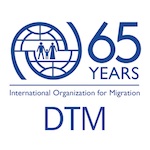
Displacement Tracking Matrix (DTM) tracks and monitors displaceme nt/ migration flows. DTM utilizes a modular approach to allow it to adapt to a variety of phases making it suitable for both response and recovery efforts. DTM has proven to be a highly beneficial component of preparedness activities and has the capability to identify high risk areas and specific sectoral needs to inform contingency planning and prepositioning of resources in line with key population needs. DTM responds in both natural disaster and conflict settings, and is currently active in sixteen high-risk countries including: Afghanistan, Bangladesh, Colombia, Democratic Republic of the Congo, Ethiopia, Haiti, Iraq, Mali, Mozambique, Namibia, Nepal, Pakistan, Philippines, South Sudan, Sri Lanka and Sudan. It has been well received and effectively used both by governments and as an inter-cluster resource by other actors on the ground.
Facebook
Website
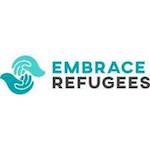
Embrace Refugees
There are nearly 20 million refugees worldwide fleeing some form of persecution. The U.S. offers resettlement to refugees who are among the most vulnerable, such as victims of torture or those caught in the crossfire of civil war. In 2016, the U.S. will admit 85,000 refugees for resettlement with a major priority given to reuniting families. The #EmbraceRefugees campaign aims to dispel common myths and misperceptions about the refugee experience and resettlement process. Audiences are encouraged to welcome and support refugees resetting in the U.S.
Note. Embrace Refugees' website has many links to organizations serving refugees as well as infographics on data and the refugee experience.
Facebook
Website
Europa - An Illustrated Introduction to Europe for Migrants and Refugees
This book was initiated by a group of photographers and journalists who have been covering both the refugee crisis in Europe and the many contexts across the Middle East, Asia, and Africa that gave rise to these migrations. With front row seats to the challenges being faced by these newly arrived people, we were struck by the utility of information that a book like this could provide. The text is intended for a general readership and is written in four languages: Arabic, Farsi, English, and French. It aims to introduce newcomers to the motivations behind the creation of the European Union, how it developed, its current ethos, and the relevant debates that will determine its future.
Link to PDF

Glasgow Refugee, Asylum, and Migration Network (GRAMNet)
We aim to bring together researchers and practitioners, NGOs and policy makers working with migrants, refugees and asylum seekers in Scotland by:
- Becoming an internationally recognised research network for Refugees, Asylum and Migration in Scotland
- Promoting knowledge exchange and capacity building between practitioners and researchers in the field through shared collaborative research programmes, open resources, the provision of joint research training workshops and professional development short courses, and the delivery of appropriate Master's and collaborative PhD degree programmes.
- Encouraging interdisciplinary research on refugees, asylum and migration.
- Developing strong and active collaborative research and development links, not only between the University of Glasgow and partners in policy making and the Third Sector, but also with those working in the field of sustainability, intercultural and international development.
Facebook
Website

Global Migration Issues
Researching international or global migration may involve delving into other topics. As one can imagine, these topics are varied: human rights, refugees, public policy, etc. While the materials and sources may vary, there are some common ways to approach researching this area.
Note. This is a comprehensive list of resources compiled by Berkeley's Boalt School of Law.
Facebook
Website
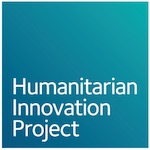
Humanitarian Innovation Project
The Humanitarian Innovation Project is a research project based at the Refugee Studies Centre, University of Oxford.
Beginning with an initial focus on the role of innovation, technology, and the private sector in refugee assistance, we have expanded the scope of our work to four main areas.
Our four project areas include: 1) refugee economies; 2) bottom-up innovation 3) military-humanitarian innovation; 4) governance innovation.
The areas in which we work have in common that they engage with actors and ideas traditionally off-limits to humanitarians: the role of markets, affected communities, the military, and politics. By breaking down conventional boundaries, we aim to highlight untapped opportunities for dialogue and collaboration.
We actively engage with practitioners from across government, international organisations, NGOs, business, and crisis-affected communities. It has strong partnerships with UNHCR and the World Humanitarian Summit, and convenes the now annual Humanitarian Innovation Conference.
Facebook
Website
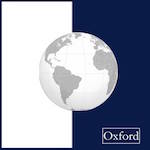
The Journal of Interrupted Studies is a free, open-access academic journal based in Oxford. We publish the works of academics, researchers and writers whose work has been interrupted by forced migration, exile and other adverse circumstances. Refugees status according to the European Union's directive 2013/32/EU and 2013/33/EU is by no means a requirement for submitting to the Journal.
Language barriers and legal obstacles to continued study in Europe often prevent refugee and migrant scholars from gaining the qualifications necessary to publish in mainstream journals. The Journal aims at providing a forum in which these academics, many of whom will have lost a lifetime of work in flight, can publish their research despite these restrictions.
Facebook
Website

McKinsey Global Initiative (MGI), founded in 1990, is McKinsey & Company's economics research arm. MGI investigat ions are conducted with the goal of improving business performanc e and competitiv eness while establishi ng a fact base for sound policy making. MGI studies aim to challenge convention al assumption s of business leaders and policy makers alike.
Note. MGI publishes reports on global migration, including refugees. In December 2016, they published the report "Global migration's impact and opportunity," writing "Our new report on the economic impact of global migration shows that migrants make up just 3.4 percent of the world’s population, but contribute nearly 10 percent of global GDP. They contributed roughly $6.7 trillion to global GDP in 2015—some $3 trillion more than they would have produced in their origin countries." There are other reports on the links below.
Facebook
Website
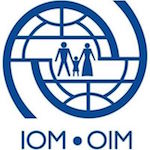
Missing Migrants Project is a global database tracking deaths of migrants and those who have gone missing worldwide.
Note. This project is part of the International Organization on Migration (IOM), hence the logo.
Facebook
Website
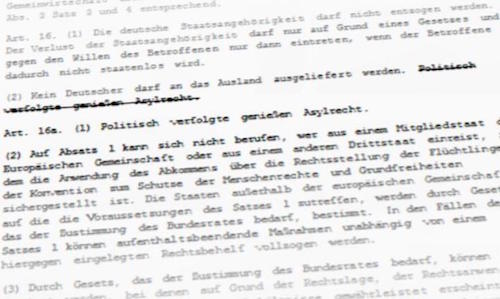
Network Refugee Research (Netzwerk Flüchtlingsforschung) Is a multi-disciplinary network of scientists and researchers in Germany who are engaged in forced migration, flight and asylum research as well as international scientists and researchers who are investigating these issues with regard to Germany. We collect and distribute relevant information to researchers, projects and publications. This is to contribute to scientific exchange and cooperation in order to establish a networked refugee research in Germany. In addition, the network of refugee research aims to gain more attention, highlighting the relevance of a scientific debate on forced migration, flight and asylum.
Facebook
Website

Refugee Research Network (RRN) has been created to mobilize and sustain a Canadian and international network of researchers and research centres committed to the study of refugee and forced migration issues and to engaging policy makers and practitioners in finding solutions to the plight of refugees and displaced persons. This initiative builds on previous efforts towards establishing a global network of researchers in the field of refugee and forced migration studies funded by the Canadian SSHRC Knowledge Cluster program.
Facebook
Website

UNHCR Data
[This is the UNHCR's comprehensive and up-to-date collection of data about refugees and migrants in the Mediterranean and Europe.]
Facebook
Website
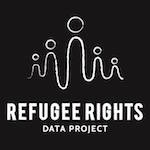
Refugee Rights Data Project was set up in late 2015 in response to the humanitarian crisis in Europe.
The project is run entirely by volunteers from a range of sectors, and includes academics and researchers, human rights specialists, media and communications experts, asylum workers, NGO managers, refugees, policy analysts and students.
The project is independent of any political ideology,economic interest or religion. We believe in the indivisibility of human rights and we are united by our aim to defend the rights of some of the world’s most vulnerable individuals.
In face of Europe's current humanitarian crisis. aid agencies and committed individuals have stepped in to provide short term care in the absence of political action. Meanwhile, a long term response to the crisis seems a distant possibility.
A lack of data related to refugees and displaced people makes an effective response difficult to form - we aim to change that.
We are currently working on our pilot data collection project in Calais, where thousands of refugees and displaced persons are living in dire conditions.
Facebook
Website
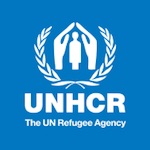
UNHCR Global Trends reports
These reports, issued annually, report on a number of factors: the total number of people displaced worldwide, with breakdowns for refugees, IDPs, and asylum-seekers; the number of people newly displaced that year; the number of people displaced per minute; the number of stateless people; the number of displaced children overall; the number hosted by developing regions; the number of refugees returned; and more. There are more links available; search for "global trends" on the UNHCR website.
Note. Reports earlier than the ones linked below are available.
2016
2015
2014
2013
2012
2011
2010
2009
Last updated September 16, 2017
Please send suggestions to Dianne Walker.
Back to home










